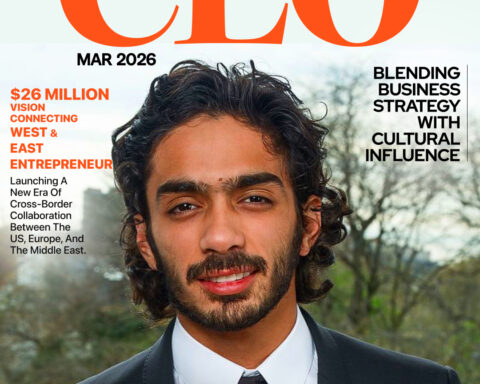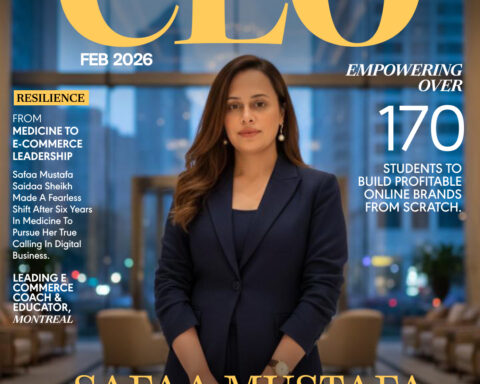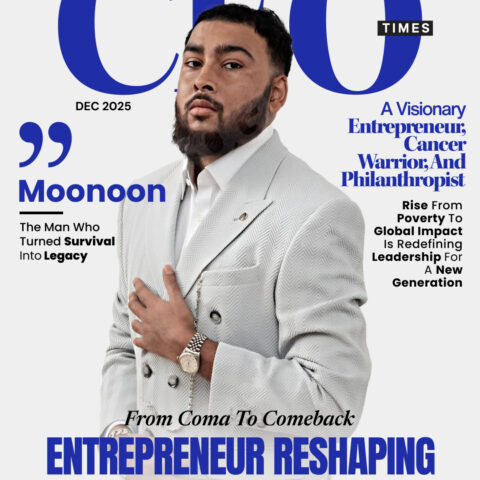From cultural tradition to culinary sensation, Oksana Kliuiko’s hand-crafted ceremonial breads are captivating America with their artistry, symbolism, and soul.
How Ukrainian Korovai Found a Home in Chicago
By celebrating heritage and crafting meaning, one baker is turning tradition into a growing trend across the U.S.
In the heart of Chicago’s vibrant small business landscape, a unique cultural story is rising — quite literally — from the oven. Oksana Kliuiko, a Ukrainian pastry chef originally from the Polissya region, has introduced something few Americans have ever encountered: the korovai, a traditional multi-tiered ceremonial bread that symbolizes prosperity, unity, and celebration in Ukrainian culture.
At a time when the city is witnessing a flourishing of immigrant-led ventures, Kliuiko stands out not just for her baking talent, but for her unwavering dedication to preserving and evolving a deeply rooted tradition. Her home-based bakery, now the only business in the U.S. exclusively making korovai to order, is at the forefront of what she calls “story-driven pastry.”
“I believe the Ukrainian korovai has the soul of a celebration and the artistry of a sculpture,” she says. “It’s a part of our genetic code, just like the vyshyvanka.”
A Symbol of Heritage, Baked to Perfection
Raised in a family steeped in baking tradition, Kliuiko honed her skills through masterclasses and competitions, earning international acclaim — including gold medals at Kyiv’s prestigious BESTCookFEST in 2016 and 2018. Her award-winning Poliskyi Korovai, a visually stunning and highly symbolic bread, has since become both a patented product and a cultural bridge between Ukraine and her new home in the United States.
Since launching her business in Chicago, Kliuiko has seen a steady rise in demand. Her clientele includes Ukrainian-Americans, expats, and a growing number of curious Americans drawn to the korovai’s ornate presentation and spiritual significance. At multicultural weddings, the towering bread adorned with doves, flowers, and suns often becomes a showstopper — and a conversation starter.
“Guests from other ethnic backgrounds are usually unfamiliar with the korovai tradition,” Kliuiko notes, “but they’re fascinated when they see the ritual and symbolism in action.”
From Kitchen Table to National Trend?
What began as a passion project is now evolving into a thriving small business. Though Kliuiko manages production herself, she fills dozens of orders each month, including long-distance shipments to other states. Her primary sales channels? Social media and word of mouth.
“Instagram has been a game changer. Most of my orders come through there,” she shares. “And of course, when people experience the korovai at an event, they want one for their own celebration.”
To meet rising demand, Kliuiko is planning to expand her team — cautiously. “I’m looking to hire assistants soon,” she says, “but given the uncertainties of small business, I’m growing slowly and intentionally.”
She’s also leveraging platforms like UberEats and GrubHub for broader reach, though her true differentiator lies in her brand’s authenticity and cultural storytelling. In addition to baking, Kliuiko authors academic articles on the history and symbolism of the korovai, ensuring that customers receive more than just a product — they receive a piece of living heritage.
Beyond a Niche
As American consumers increasingly seek out authentic, artisanal, and meaningful food experiences, Kliuiko believes the korovai has potential far beyond its ethnic origins.
“With the right storytelling and education,” she explains, “it could stand proudly alongside other beloved festive bakes in American culture — like stollen, panettone, or babka.”
Indeed, the korovai is much more than bread. It’s a legacy kneaded by hand, baked with purpose, and shared in celebration — now finding new life in the melting pot of American cuisine.
Oksana Kliuiko’s journey proves that tradition isn’t static — it evolves, it migrates, and when nurtured with skill and passion, it thrives.

















